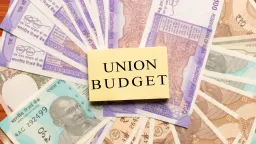What is Personal Finance?

Personal finance is the study of how people manage their money. It includes planning, saving, investing, and spending. While it might seem like a dry subject, personal finance is actually incredibly important. After all, money is one of the most important things in our lives. It can determine whether we live a comfortable life or a life of struggle. In this blog post, we will explore what personal finance is and why it’s so important. We will also provide some tips on how you can start managing your own finances.
What is Personal Finance?
Personal finance is the process of planning and managing your personal finances. It includes all aspects of your financial life, including saving, investing, and spending.
Most people think of personal finance as simply budgeting or money management. While these are important aspects of personal finance, they are only a part of the larger picture. Personal finance also includes goal setting, retirement planning, and estate planning.
What are the Main 5 Components of Personal Finance?
Personal finance is the process of planning and managing your money to achieve your financial goals. It includes creating a budget, saving money, investing money, and spending money wisely.The main components of personal finance are:
- Creating a budget
- Saving money
- Investing money
- Spending money wisely
- Managing debt
1. Creating a budget
This involves setting up a system to track your income and expenses so that you can see where your money is going. A budget can help you to identify areas where you may be able to save money.
2. Saving money
This involves setting aside money each month into a savings account so that you have funds available for unexpected expenses or future goals.
3. Investing money
This involves putting your money into assets such as stocks, bonds, or mutual funds in order to grow your wealth over time.
4. Spending money wisely
This involves making mindful choices about how you use your hard-earned cash and only spending it on things that are important to you.
5. Managing debt
This involves creating a plan to pay off any outstanding debts you may have in a timely manner. It also includes avoiding new debt if possible and only using credit cards responsibly.
Why is Personal Finance Important?

There are many reasons why personal finance is important. For one, it can help you save money. By carefully managing your finances, you can put away money each month to cover unexpected expenses or save for a rainy day.
In addition to helping you save money, personal finance can also help you reduce debt. If you have a handle on your finances, you can make smart choices about how to use credit and avoid taking on too much debt. This can help you keep your monthly payments manageable and avoid financial stress.
Last but not least, personal finance can give you peace of mind. When you’re in control of your finances, you don’t have to worry about making ends meet or juggling bills. You can relax and enjoy your life knowing that your finances are under control.
Why Being Disciple is Important in Personal Finance?
There is no one-size-fits-all answer to the question of what disciplined personal finance looks like. However, there are some key behaviors that can help you get your finances in order and keep them that way.
Some of the most important things you can do to stay disciplined with your personal finance include:
- Creating and sticking to a budget
- Paying yourself first
- Investing for the future
- Avoiding debt
- Building an emergency fund
1. Creating and sticking to a budget
This is probably the most important thing you can do to stay on top of your finances. A budget will help you track your spending, see where your money is going, and make adjustments as needed. Without a budget, it’s all too easy to overspend and get into financial trouble.
2. Paying yourself first
One of the best ways to make sure you’re always putting something aside for savings is to pay yourself first. This means automatically transferring a fixed amount of money from each paycheck into your savings account before you even have a chance to spend it. This will help you build up your savings quickly and make it less likely that you’ll dip into it for everyday expenses.
3. Investing for the future
Another key element of disciplined personal finance is investing for the future. This could mean setting up a retirement account or investing in other long-term goals like buying a home or saving for college tuition. Investing early and often will help you reach your goals more quickly and enjoy a better financial future overall.
4.Avoiding debt
If at all possible, avoid taking on debt. This includes things like credit card debt, student loans, and car loans. Not only will debt make it harder to reach your financial goals, but it can also be expensive in the long run thanks to interest payments.
5. Building an emergency fund
Finally, one of the most important things you can do for your finances is to build up an emergency fund. This way, if you ever face a unexpected expense or income loss, you’ll have some money set aside to help you through it. Having an emergency fund can help you avoid going into debt or making other financial mistakes in the midst of a crisis.









